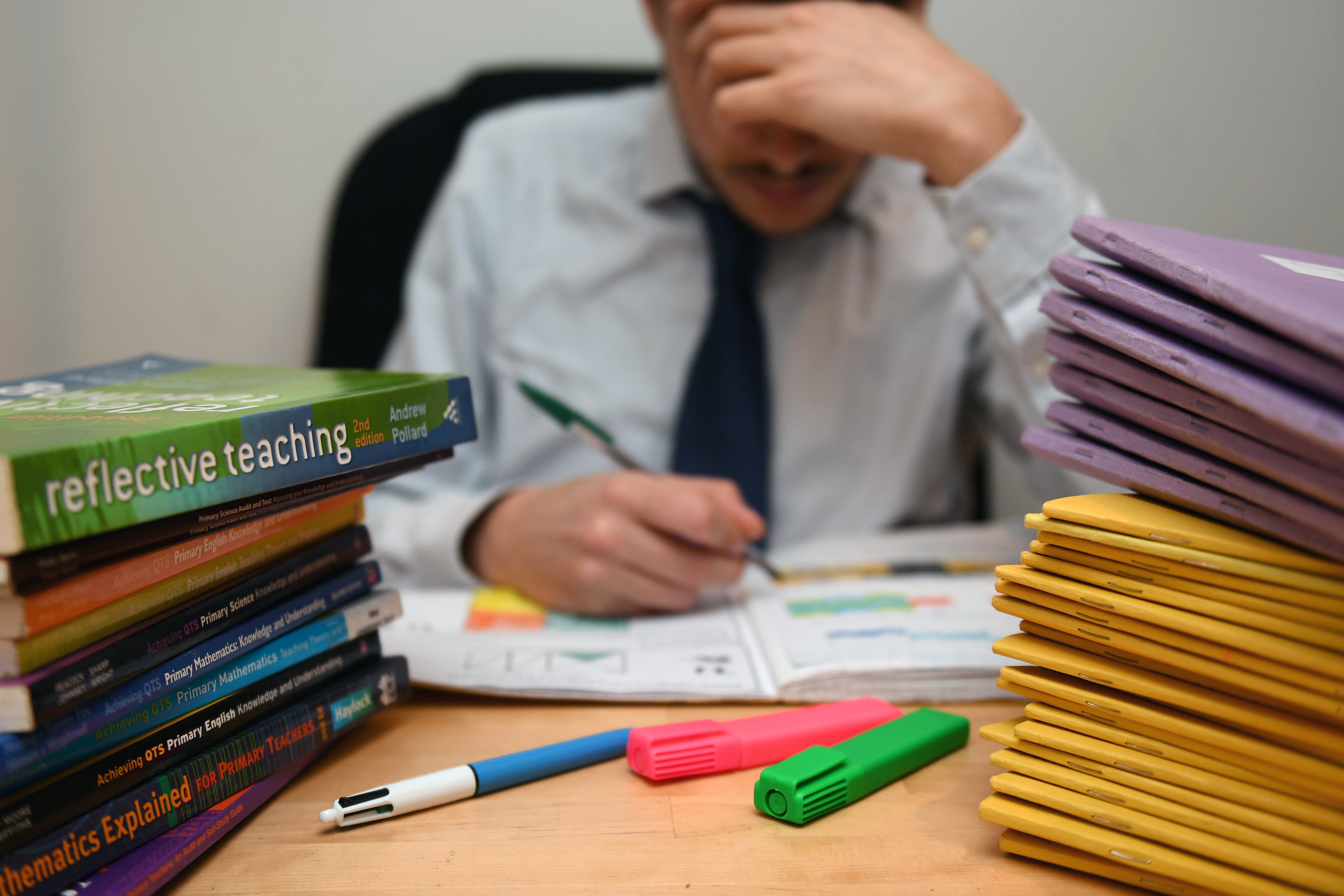Most teachers suffering from depression – survey
On average, teachers’ scores indicate probable clinical depression, survey finds.

Your support helps us to tell the story
From reproductive rights to climate change to Big Tech, The Independent is on the ground when the story is developing. Whether it's investigating the financials of Elon Musk's pro-Trump PAC or producing our latest documentary, 'The A Word', which shines a light on the American women fighting for reproductive rights, we know how important it is to parse out the facts from the messaging.
At such a critical moment in US history, we need reporters on the ground. Your donation allows us to keep sending journalists to speak to both sides of the story.
The Independent is trusted by Americans across the entire political spectrum. And unlike many other quality news outlets, we choose not to lock Americans out of our reporting and analysis with paywalls. We believe quality journalism should be available to everyone, paid for by those who can afford it.
Your support makes all the difference.Most teachers show signs of clinical depression, a new survey at the start of Mental Health Awareness Week has suggested.
In a self-selecting survey of nearly 12,000 teachers and headteachers as part of the NASUWT teaching union’s wellbeing survey, teachers scored 38.7 on average, where a score below 41 indicates the risk of probable clinical depression.
Nine in 10 – 91% – of the teachers surveyed said that their job had adversely impacted their mental health over the past year.
Over half of the teachers – 52% – said workload was the most important factor in damaging their mental health, while 34% cited the consequences of the pandemic.
The survey found that classroom teachers, disabled teachers and teachers working in deprived areas were more likely to show signs of depression.
The research heard from teachers who had suffered panic attacks as a result of bullying, as well as teachers diagnosed with post-traumatic stress disorder.
A minority of the teachers – 3% – reported that they had self-harmed.
Patrick Roach, NASUWT general secretary, said that the findings provided “disturbing evidence of a mental health crisis in schools and of psychiatric injury and harm being caused to teachers and headteachers”.
“Teachers and headteachers are at breaking point,” Dr Roach added.
He said that urgent action was needed to tackle the root causes of a mental health crisis in the profession.

“Ministers need to wake up to the facts and commit to making improving the morale and health of the profession its number one priority,” he said.
“Teachers, headteachers and pupils deserve better.
“We are reminding employers and the Health and Safety Executive that they have a statutory duty to act in response to this crisis, and to take positive action to protect and safeguard the mental health and welfare of teachers and headteachers.”
The union’s survey ran from mid-December 2021 to early January 2022. All the union’s members were contacted by email and 11,857 teachers responded.
This article was amended on 10 June 2022 to reflect that fact that the survey respondents were self-selecting.